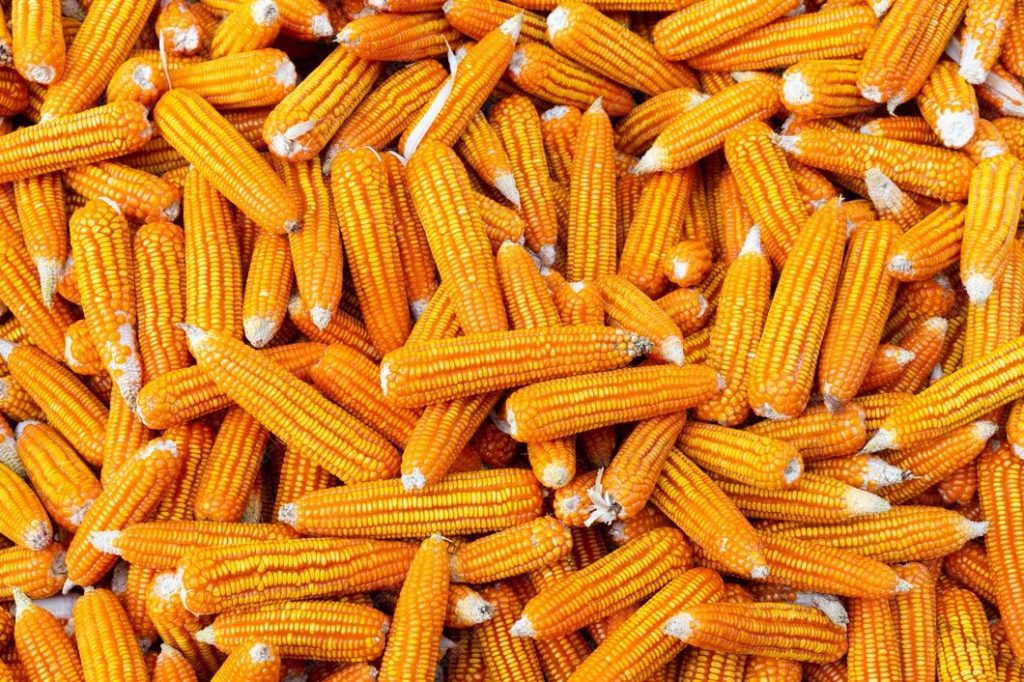
Ghana’s corn imports are projected to rise sharply in the 2025/2026 marketing year, reaching an estimated 500,000 metric tonnes (MT), according to the U.S. Department of Agriculture’s Grain and Feed Annual 2025 Report. This represents a 67 percent increase over the 2024/2025 estimate.
The upward trend follows the government’s decision to extend the suspension of restrictions on corn imports, a policy first introduced by the previous administration to ease supply constraints and stabilise consumer prices.
Corn prices in Ghana peaked at GHȼ380 ($24.52) per 50kg bag in February 2025, forcing policymakers to keep the market open to foreign suppliers in order to prevent further price spikes during the lean season. The influx of imports has already started to ease market pressures, with consumers and agribusinesses benefiting from lower prices.
Despite this relief, the policy has triggered anxiety among local farmers. In maize-producing hubs such as the Afram Plains, reports point to a glut in supply, with many farmers struggling to sell their harvests amid rising competition from cheaper imports.
Stakeholders in the agriculture value chain are cautioning against overreliance on imports. Anthony Morrison, CEO of the Chamber of Agribusiness Ghana, told Citi Business News that a comprehensive strategy is needed to safeguard domestic production.
“We may have to look at a long-term approach, not just beating down production costs. Farmers need protection if we want a sustainable maize industry,” he said.
The USDA report also noted that extended dry spells in 2024 severely hampered domestic maize output, compelling the government to facilitate the importation of over 300,000 MT of corn. That decision, backed by tax exemptions and private sector incentives, led to an almost 18-fold surge in imports compared to the previous year.
Analysts warn that while the current open-market policy offers short-term stability, a delicate balance must be struck between import reliance and local production to ensure food security, protect rural livelihoods, and sustain Ghana’s agribusiness sector.
























































![[FREE FREE MONEY] Predict and Win a Guaranteed GH¢200 From Us EVERY WEEK](https://wordpress.ghanatalksradio.com/wp-content/uploads/2022/02/Predict-and-Win-Final-09-03-2021-218x150.jpg)
![[Predict & Win – 8th/Oct.] WIN A Guaranteed ¢200 From Us This Week](https://wordpress.ghanatalksradio.com/wp-content/uploads/2021/10/maxresdefault-16-218x150.jpg)
![[Predict & Win – 2nd] WIN A Guaranteed ¢200 From Us This Week](https://wordpress.ghanatalksradio.com/wp-content/uploads/2021/09/maxresdefault-50-218x150.jpg)
![[Predict & Win – 25th] WIN A Guaranteed ¢200 From Us This Week](https://wordpress.ghanatalksradio.com/wp-content/uploads/2021/09/maxresdefault-36-218x150.jpg)
![[Predict & Win – 18th] WIN A Guaranteed ¢200 From Us This Week](https://wordpress.ghanatalksradio.com/wp-content/uploads/2021/09/maxresdefault-23-218x150.jpg)











![[National cathedral] See full list of churches that have contributed since 2018](https://wordpress.ghanatalksradio.com/wp-content/uploads/2020/09/Ghana-National-Cathedral-GhanaTalksRadio-100x70.jpg)



